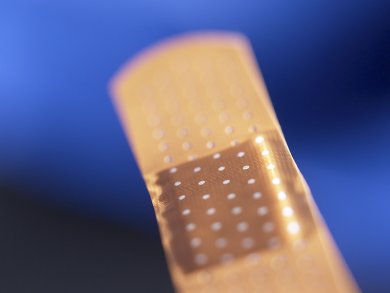Silver-based compounds are commonly used in the treatment of burns, open wounds, and chronic ulcers due to silver’s antimicrobial activity. Several commercial products containing silver salts have been developed, e.g., silver-coated dressings.
Silver–N-heterocyclic carbenes (NHCs) show promise against a broad spectrum of highly resistant respiratory pathogens and against Escherichia coli and Staphylococcus aureus. Sylvain Roland, Université Pierre et Marie Curie, France, and co-workers synthesized a range of Ag-NHCs and tested their antibacterial activity.
Two complexes were found to inhibit both susceptible and resistant strains of S. aureus at low and clinically achievable concentrations. Due to synergistic effects, silver–NHCs could also restore the activity of ciprofloxacin against resistant S. aureus NorA at very low concentrations.

- Investigation of a Series of Silver–N-Heterocyclic Carbenes as Antibacterial Agents: Activity, Synergistic Effects, and Cytotoxicity
S. Roland, C. Jolivalt, T. Cresteil, L. Eloy, P. Bouhours, A. Hequet, V. Mansuy, C. Vanucci, J.-M. Paris,
Chem. Eur. J. 2011.
DOI: 10.1002/chem.201002812




